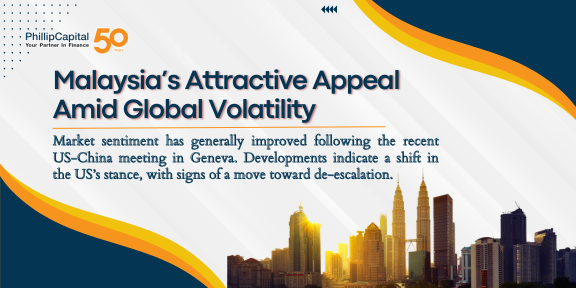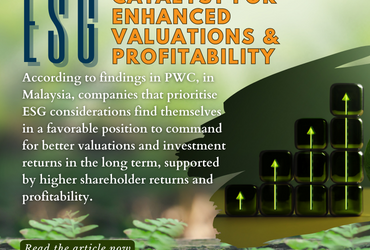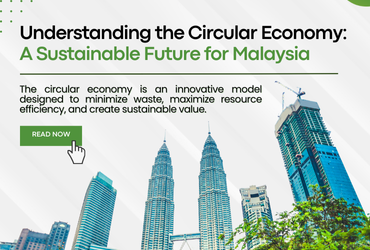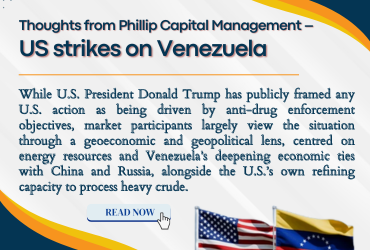
Market sentiment has generally improved following the recent US-China meeting in Geneva. Developments indicate a shift in the US’s stance, with signs of a move toward de-escalation. The previously threatened tariffs exceeding 100% on Chinese imports have been significantly scaled back. While the effective tariff rate on Chinese goods remains at 40%—comprising 10% from the pre-Trump 2.0 era, 20% linked to fentanyl, and a 10% baseline—the non-trade-related components suggest room for reduction through further negotiations. China appears open to renewed engagement, potentially through agricultural purchase commitments similar to those made prior to the Trade War 1.0. Additionally, if there are interests from Chinese companies in establishing manufacturing operations in the US—particularly in sectors like electric vehicles and batteries (think BYD and CATL)—this could further support China’s global expansion goals and is aligned with US domestic reindustrialization efforts.
That said, it should still be noted that the tariff agenda has not been fully abandoned. While the current base case of a 10% across-the-board tariff is a significant step back from earlier proposals, it would still represent the highest general tariff level in decades. This remains a net negative for trade flows and cost structures, even if it is less severe than initially feared. Higher import costs would continue to impact prices across the economy, adding to ongoing inflation concerns. The Fed may still be hesitant to cut rates as a result.
In addition to tariff-related inflationary pressures, recent developments in the US debt market have further raised concerns. Moody’s downgrade of the US credit rating to Aa1 underscores growing caution about the country’s fiscal outlook. This follows Fitch’s downgrade in August 2023 and S&P’s in August 2011. These downgrades reflect rising U.S. debt and interest burdens due to chronic fiscal deficits and political gridlock. While it may slightly raise borrowing costs and prompt fiscal scrutiny, the U.S. still issues debt in its own currency and retains its reserve currency status. Historically, markets have rebounded after downgrades. Though short-term impacts are limited, the downgrade serves as a warning about the long-term sustainability of America’s fiscal path.
Amid persistent global market uncertainties, we recommend a strategic pivot towards Malaysia’s equity landscape. The country’s robust economic fundamentals, coupled with supportive government policies, provide a solid foundation for sustainable growth. Notably, the KLCI is currently trading at a compelling 12.7x price-to-earnings ratio—approximately 25% below its decade-long average of 17x—highlighting significant valuation appeal. Furthermore, foreign ownership remains near historic lows at 19.4% as of April, suggesting meaningful potential for incremental capital inflows. Against the backdrop of heightened global volatility, Malaysia presents a uniquely attractive opportunity for investors seeking resilient growth and value.
Phillip Capital Malaysia and our offerings
We reaffirm our belief that there are still opportunities in the market, and we maintain a discerning approach in choosing high-quality stocks for our portfolio. However, it is crucial to exercise caution and carefully select investment options to ensure the best risk-adjusted returns. By taking a vigilant and discerning approach, investors can potentially reap the benefits of the current market opportunities while minimising risks.
A noteworthy avenue for investors seeking diversification in their portfolio is through PhillipCapital Malaysia. PhillipCapital Malaysia offers multiple private mandate services managed by professional fund managers. By leveraging PhillipCapital Malaysia’s private mandate services, investors can enhance their resiliency, optimise portfolio performance, and navigate the complexities of the market with confidence.
We also offer both conventional and Shariah-compliant options to cater to the needs of all investors. For Malaysia’s mandates, we like:
- PMART/PMA Dividend Enhanced and/or PMART/PMA Dividend Enhanced ESG
Our PMART Dividend Enhanced and PMA Dividend Enhanced is an income-driven portfolio focused on high dividend-yielding equities. We apply the Dog of the Dow approach, screen and select top market cap stocks to minimise risk and ensure consistent performance. The portfolio is an equal weighting portfolio which reduces concentration risk and provides similar exposure to all clients, both initially and after rebalancing. We offer both conventional and Shariah investment options to cater to the diverse needs of our investors. Click here to learn more. We recently also introduced PMART/PMA Dividend Enhanced ESG Mandate as we remain dedicated to investing in ESG stocks given their stronger valuation and profitability.
- PMART/PMA ESG
Phillip Capital Malaysia offers discretionary portfolio that invests in stocks with high ESG ratings from the F4GBM and F4GBMS Indices, namely PMART and PMA ESG. There are both conventional and Shariah options available. To explore the companies in which both Conventional and Shariah ESG mandates invest, you can refer to the provided link.
- PMART/PMA Blue Chip and Opportunity
Our Blue-Chip portfolios primarily allocate our investments towards companies with large market capitalisations, while the Opportunity portfolios predominantly invest in companies with smaller market capitalisations. We also offer both conventional and Shariah-compliant options to cater to the needs of all investors.
Please click on the link to learn more or email us at cse.my@phillipcapital.com.my if you require any further information.
Disclaimer:
The information contained herein does not constitute an offer, invitation or solicitation to invest in Phillip Capital Management Sdn Bhd (“PCM”). This article has been reviewed and endorsed by the Executive Director (ED) of PCM. This article has not been reviewed by The Securities Commission Malaysia (SC). No part of this document may be circulated or reproduced without prior permission of PCM. This is not a collective investment scheme / unit trust fund. Any investment product or service offered by PCM is not obligations of, deposits in or guaranteed by PCM. Past performance is not necessarily indicative of future returns. Investments are subject to investment risks, including the possible loss of the principal amount invested. Investors should note that the value of the investment may rise as well as decline. If investors are in any doubt about any feature or nature of the investment, they should consult PCM to obtain further information including on the fees and charges involved before investing or seek other professional advice for their specific investment needs or financial situations. Whilst we have taken all reasonable care to ensure that the information contained in this publication is accurate, it does not guarantee the accuracy or completeness of this publication. Any information, opinion and views contained herein are subject to change without notice. We have not given any consideration to and have not made any investigation on your investment objectives, financial situation or your particular needs. Accordingly, no warranty whatsoever is given and no liability whatsoever is accepted for any loss arising whether directly or indirectly as a result of any persons acting on such information and advice.






